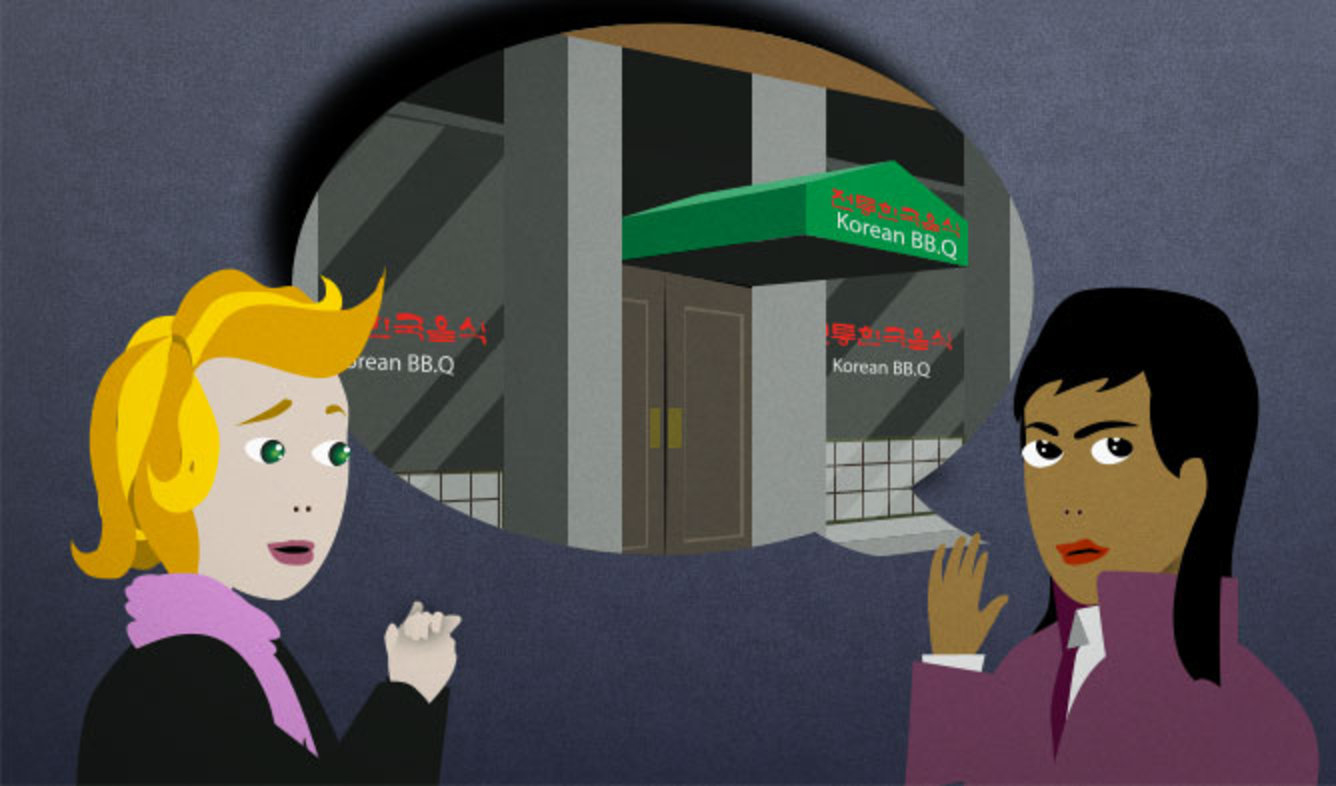“Fine, we'll go to the Korean place.”
You and your friend can't decide where to go out to eat at tonight. You really wanted to go to a vegetarian restaurant that you like, but your friend doesn't want to go there because it's expensive and always busy. She wants to go to a Korean restaurant that you've been to together many times. You give in and say this.
Fine, we'll go to the Korean place.
Want Video and Sound? Follow us on YouTube

a place
You can call a restaurant a "place" in casual conversation:
There's a place on 6th Street that's pretty good.
You can also describe what kind of restaurant it is:
Have you been to that new pizza place up on 83rd Street?
There's this amazing Italian place we go to sometimes. I have to take you there.
And you can call a bar or dance club a "place" as well:
Do you want to have a drink? I know a place nearby.
Fine!
People say this word after arguing or debating with someone. This word shows that you're letting the other person win the argument. You're going to do what they say, although you're not happy about it.
Here are some examples:
Fine, I'll cook.
A: Come on, please come with us!
B: OK, fine. But I'm riding in the front seat.
A: I'm sick and tired of this! I'm leaving you!
B: Fine! Leave then!
The stronger you stress the word "fine", the angrier you seem. In the middle of a big argument, you can shut down the discussion by saying "Fine!" and then suggesting some extreme action:
You don't like how I'm dressed? Fine! Go by yourself then.
"Fine" really means "good", so when you use this word to end in an argument, you're saying the opposite of what you really think.
If you want to say that something really is "fine", meaning good or OK, use "That's fine" instead of "Fine!".
